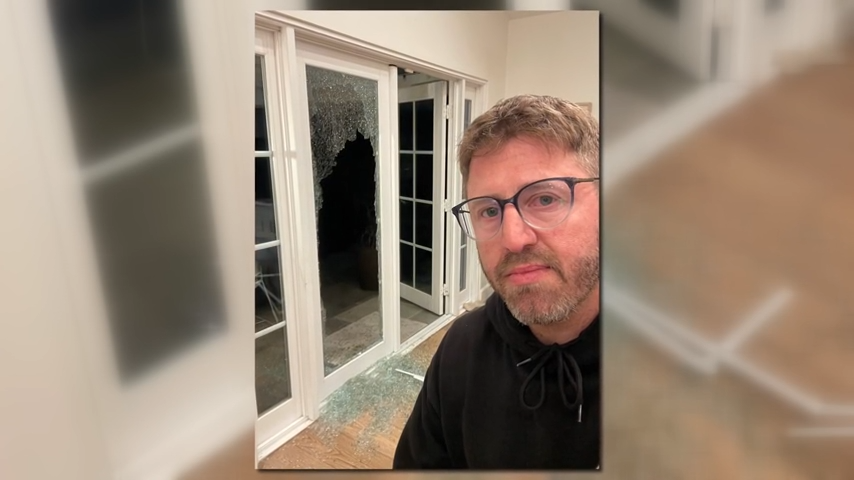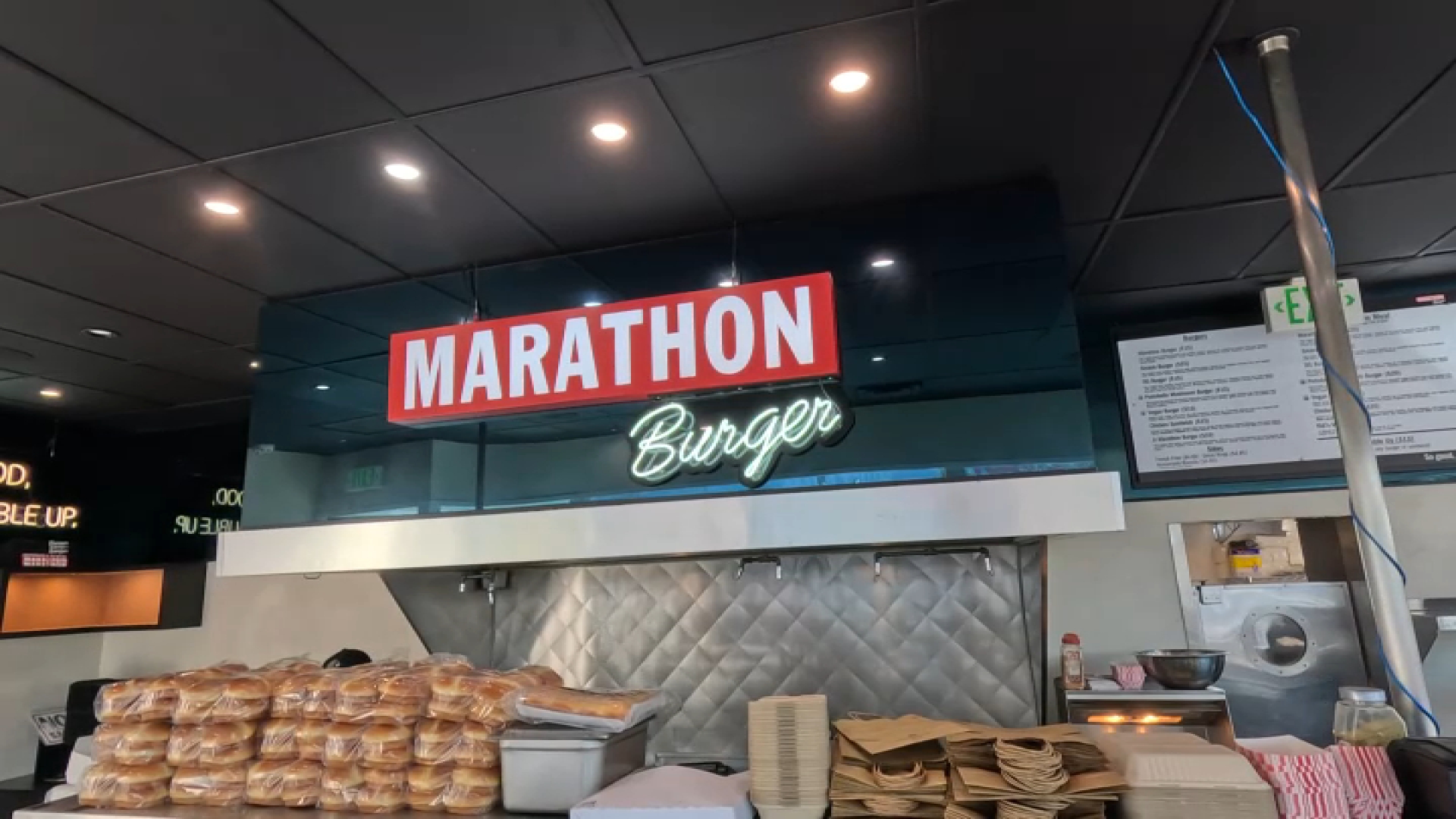The process can take months or years to complete. Eric Leonard reports for the NBC4 News on Friday, Oct. 1, 2021.
The LA City Council will consider directing the City's Department of Cannabis Regulation to speed up the licensing process for many would-be marijuana retailers.
"Stakeholders report waiting months to receive basic licensing responses from DCR," Councilmen Marqueece Harris-Dawson and Curren Price, Jr. said a motion introduced this week.
"Hundreds of critical license modification requests remain unprocessed, many almost a year after submission," they said.
The long delays have meant many applicants, including more than 100 who qualified under the City's social equity program, have spent untold sums of money renting commercial space while waiting for their permits to be approved. Holding a suitable space is a licensing requirement for many applicants.
Get top local stories in Southern California delivered to you every morning. Sign up for NBC LA's News Headlines newsletter.
"It's a complete mess," said Johnny Sayegh with the Cannabis Equity Retailers Association, a group advocating for the social equity applicants in LA. He said there are many people who qualified for a license who have been paying rent but can't start doing business.
"Someone who's been holding a property since May of 2019, nearly two and a half years in, you've probably committed hundreds of thousands of dollars. So it's just like it's one big fiasco," he said.
The Department of Cannabis Regulation said in a lengthy statement that the Council's push for more immediate deadlines could have the opposite of the intended effect, causing applications to be denied or abandoned because business owners might not have enough time to complete all of the requirements.
Local
Get Los Angeles's latest local news on crime, entertainment, weather, schools, cost of living and more. Here's your go-to source for today's LA news.
"The Department of Cannabis Regulation remains committed to ensuring cannabis business licensing in Los Angeles is as fast, efficient and equitable as possible," DCR executive director Cat Packer told the I-Team in a prepared statement.
"It is my mission to ensure that the Department will continue to provide support and prompt service in the face of extreme challenges we've all faced this year with COVID-19, and subsequent City hiring freezes," the statement said.
Just south of the garment district in Downtown LA Crystal Ryan and her husband Joe say they've been in limbo for more than a year after being selected for one social equity retail location in that part of the City.
"I grew up in South Central, so my zip code qualified me to become an applicant," she told the I-Team. "I'm the only Mexican-American Latina that has actually applied here!"
The Ryans have filed a writ of mandate in LA Superior Court to try to compel the City and DCR to allow her store, still sitting empty at Main and 11th Streets, to open.
DCR says another licensee about a block away on Los Angeles St. was in the neighborhood first, and therefore, the Ryans can't use the space because the two locations would violate the City's distancing rules.
The Ryans' writ says the other license did not appear on City maps when they applied in 2019, and argued in court papers that the Los Angeles St. location has been vacant the entire time.
"So DCR is basically holding that spot for them," Crystal Ryan said. "It's just empty, so they'd rather hold it for an empty spot that's not paying taxes?"
A DCR official said the Los Angeles St. license is valid so long as the owner pays its fees. The ownership of that particular business is in the midst of a legal dispute that's been set for a second trial in June, 2022, according to LA Superior Court records.
"At this point, it's not even about the money," Crystal Ryan said. "It's not the license. It's just -- these are your rules. I played by your rules. So I just want to know, where did I go wrong?"
The Council motion that proposes to accelerate the permit process has been referred for hearings in several Council committees. Councilmen Harris-Dawson and Price, Jr. did not respond to the I-Team's inquiries or requests for interviews.
The LA Department of Cannabis Regulation provided this response to the Council proposal, published here in its entirety:
The Department of Cannabis Regulation was established to regulate the legal cannabis industry in Los Angeles based on the ordinances, rules and regulations adopted by the Los Angeles City Council. As such, the Department works with the City Council on a regular basis to update these laws and regulations, and to adjust the City's processes as the State of California continues to streamline their operations and processes, and to implement practical solutions suggested by stakeholders to improve challenges faced by the community, specifically Social Equity Applicants. Together with City leadership, DCR continues to make updates to our laws to make doing cannabis-related business in the City of Los Angeles less burdensome.
Since the City Council adopted the most recent amendments to Los Angeles Municipal Code (LAMC) Sections 104 and 105 et seq. in July of this year, DCR has been sharing information about the updated processes, procedures and anticipated timelines through regular announcements and in-depth presentations at several Cannabis Regulation Commission meetings. Taken together, the July amendments collectively constitute the most significant update to local commercial cannabis regulations since the original regulations were adopted. The July amendments decoupled the City's licensing process from the State's licensing process; changed the date DCR could determine a business premises compliant with the land-use ordinance from the date the Applicant received a City license and a State license to the date the Pre-Application Review record is deemed eligible for further processing; streamlined the Pre-Application Review requirements, processes and anticipated timelines; streamlined the Temporary Approval Application requirements, process and anticipated timelines; removed application requirements associated with the State provisional application process from the City's Temporary Approval Application process and clarified modification request requirements, process and anticipated timelines. After these amendments became effective, DCR began updating its internal processes and the DCR Licensing Portal to implement the new or modified requirements. DCR ultimately implemented these changes when it re-opened the DCR Licensing Portal on October 1.
DCR is committed to processing applications in a timely manner. However, DCR shared concerns with members of the City Council about a legislative mandate for DCR to process applications in a specified timeline. Imposing deadlines on DCR also imposes deadlines on applicants to provide certain documentation, forms, or complete inspections in a timely manner so that DCR can comply with the required time periods. Mandating certain application processing timelines will impact hundreds of current applicants (including many social equity applicants) who may be denied or abandoned if their application is in some way deficient and/or if they are unable to provide DCR the required records to meet DCR's deadline. For instance, more than 60% of the Phase 3 Retail Round 1 social equity applicants have not submitted the required documents for their application to be deemed completed. Over half of these applicants have not submitted any of the required documents for the Temporary Approval Application process. Therefore, setting timelines requiring DCR to make a determination by date certain will result in the abandonment or denial of hundreds of social equity applications.
Further, legislatively mandating DCR to follow specific application processes within a codified timeline will compromise how DCR manages other application processes, DCR's ability to be flexible in managing its many non-application processing responsibilities, and may force DCR to compromise other priorities that have major industry and fiscal impacts. For example, the State of California has recently imposed deadlines for applicants (and thereby local jurisdictions) to meet certain requirements for provisional licenses and completion of CEQA. DCR may be forced to prioritize the review of applicants seeking Pre-Application Review or Temporary Approval (because of timeline mandates) rather than administering other processes that help facilitate meeting provisional license or CEQA requirements.
Rather than imposing timeline mandates, DCR instead recommends shifting capacity to assist applicants in meeting licensing requirements. Earlier today, the Department of Cannabis Control announced a $100 Million Local Jurisdiction Assistance Grant Program. DCR will work with the City Council to discuss the City's opportunity to apply for $22 million in grants to support applicants with the annual licensing requirements. The Department hoped to continue working with the City Council prior to the introduction of this motion to plan how to manage both the Temporary Approval process and the impending annual licensing process before the City prematurely ties its hands with mandating processing timelines.
DCR plans to remit a report responding to the motion and attached draft proposal in the coming weeks with our full recommendations.



